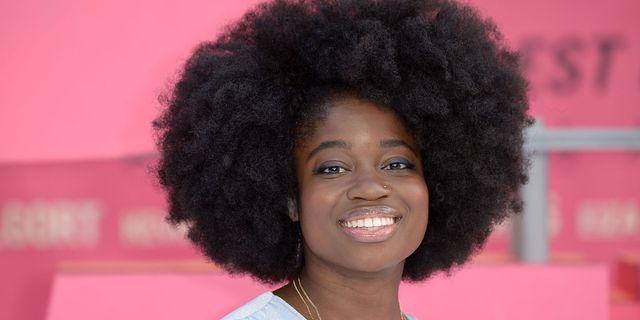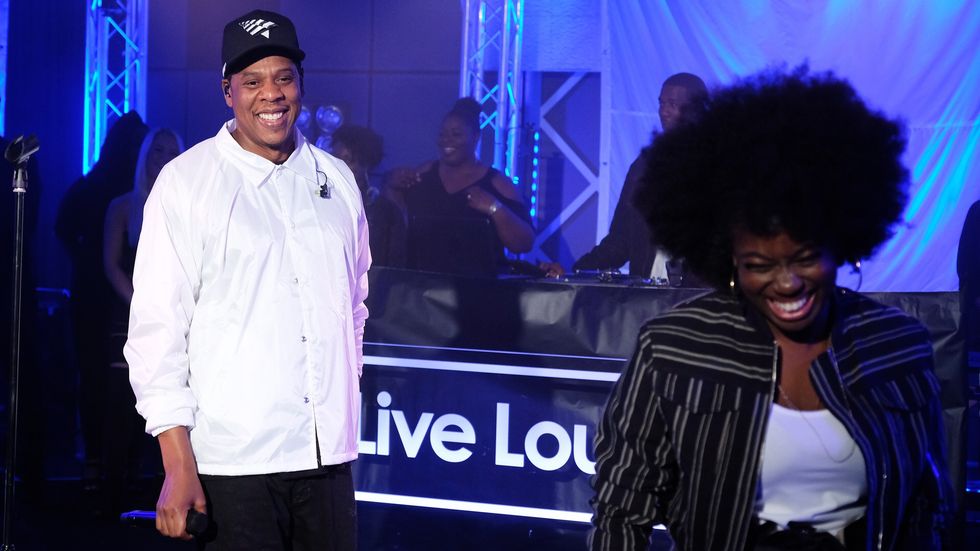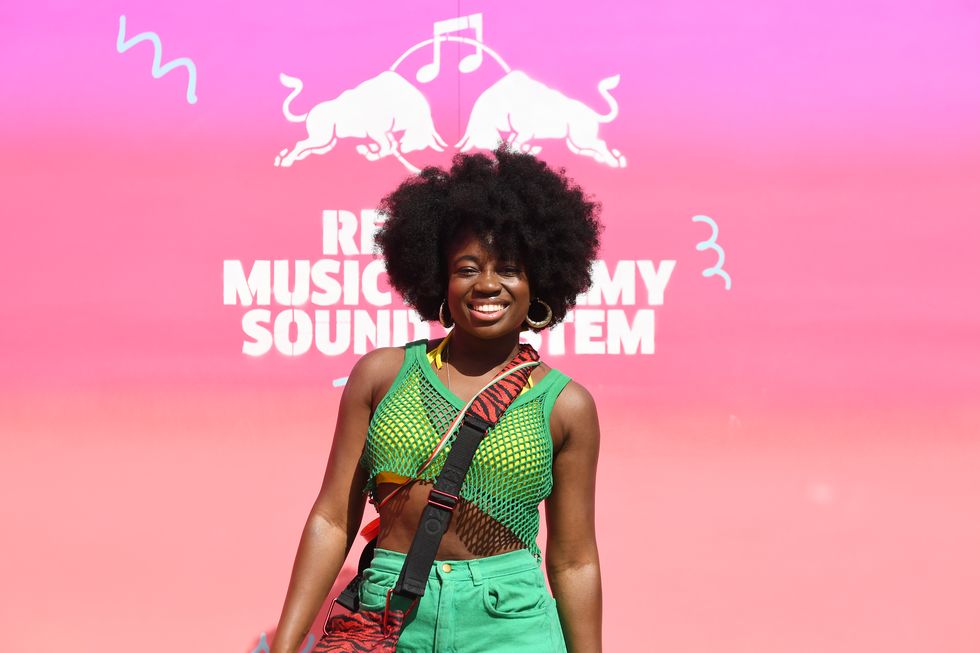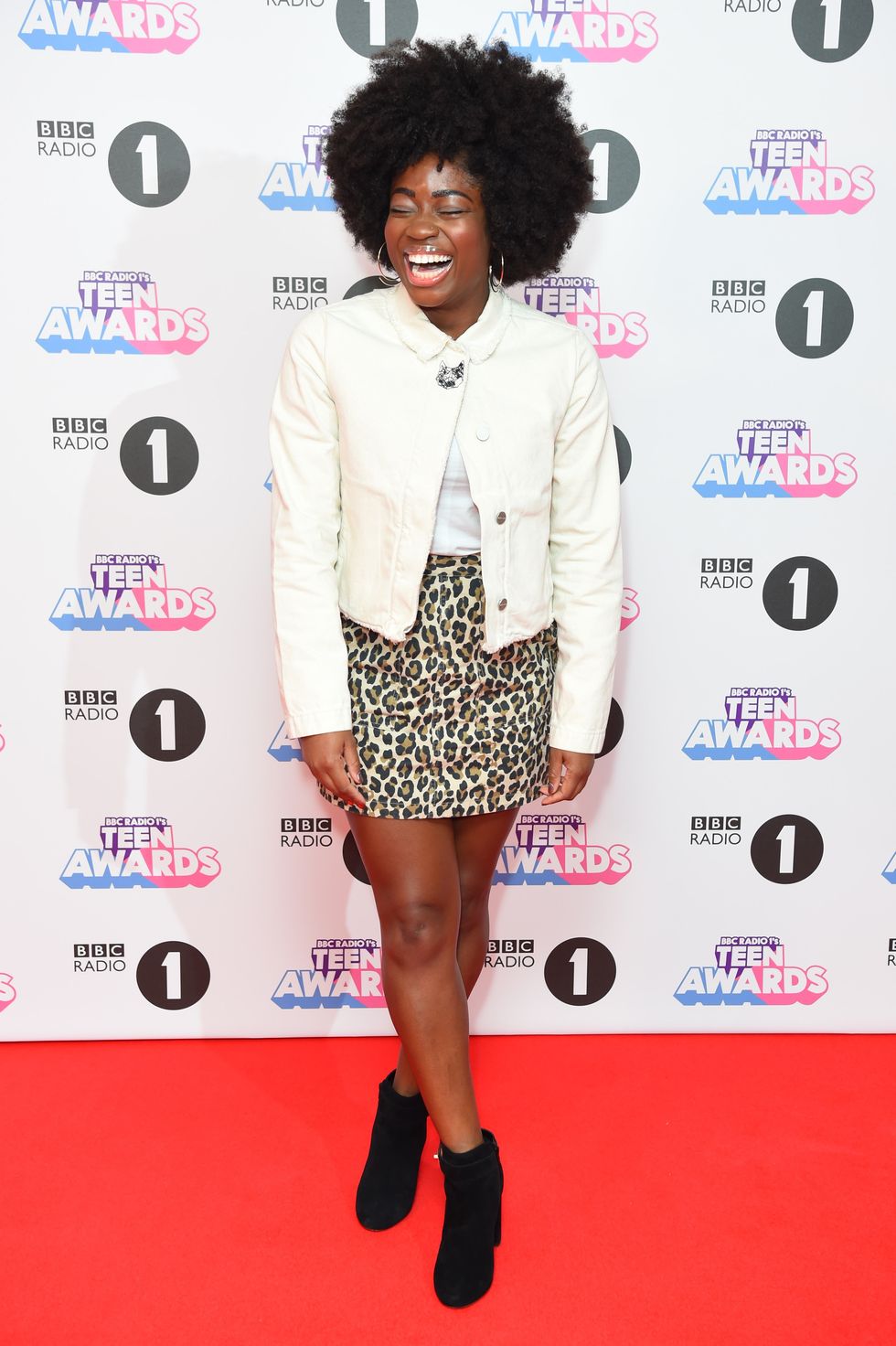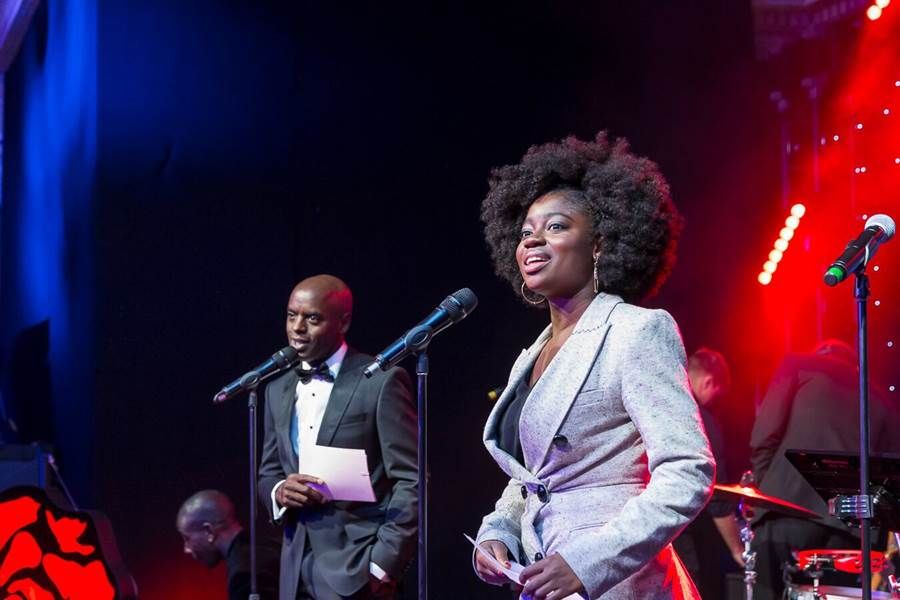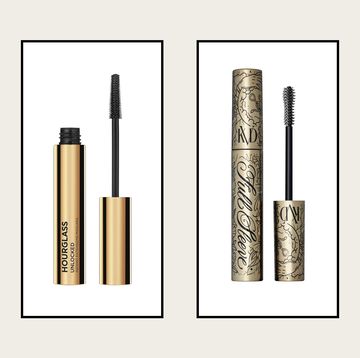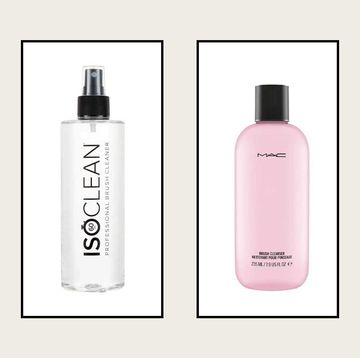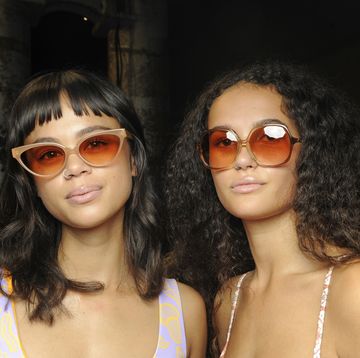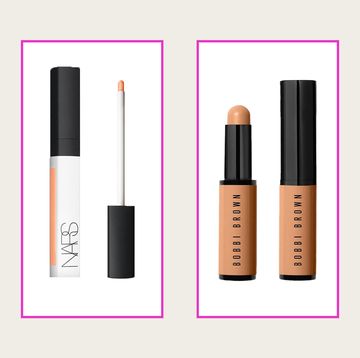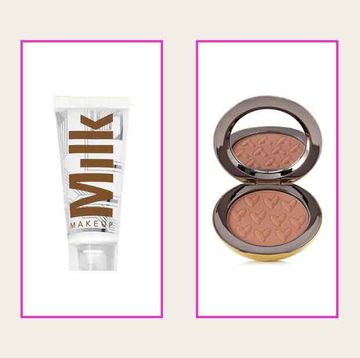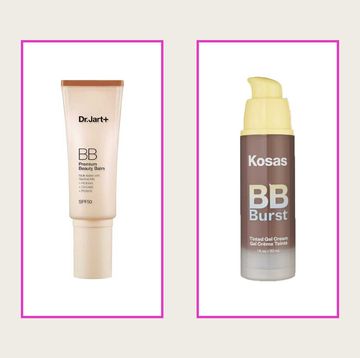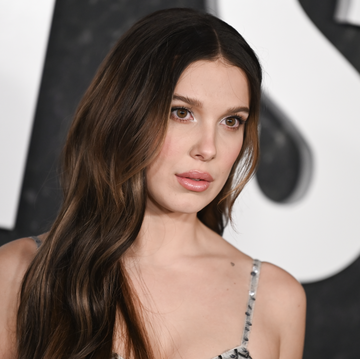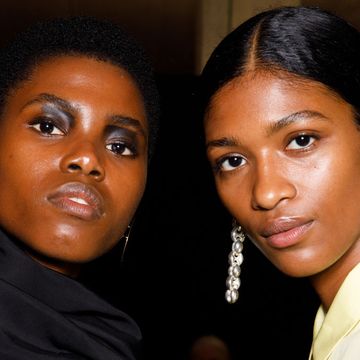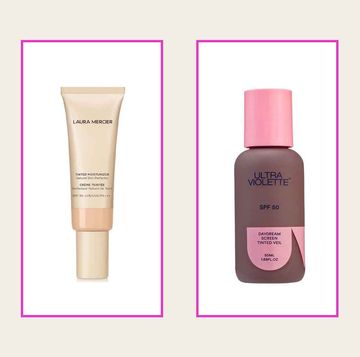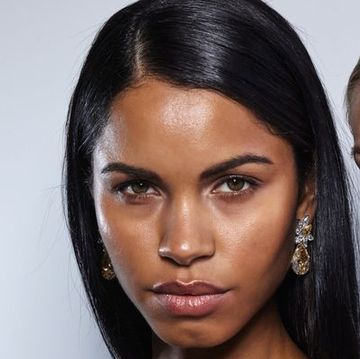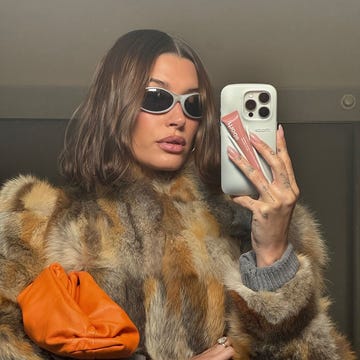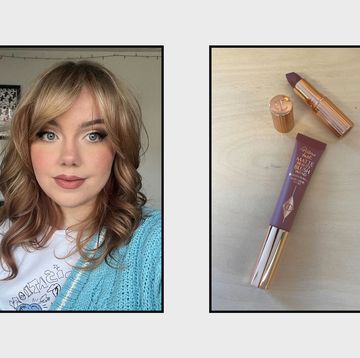Saturday morning, early part of the 2000s, I remember it well.
I was getting ready to go to my beloved Saturday job at a local surf and skate shop.
I had auburn braids, baggy jeans and a face patted down with a newly discovered foundation.
It was a pressed powder that I had found in my mum's bedroom and decided was now mine!
In my head, I looked like a grown woman with a perfect beauty regime. Looking back, I was a young girl with a suspiciously ashy face, due to wearing a foundation that was two shades too light for me.
Like a lot of my peers, my foray into makeup use started with trying to make my eyes look as alluring as possible. I never found a lipstick that suited me perfectly, so eye shadows and mascaras were my thing. The Rimmel and Collection 2000 stands in my local Superdrug were the go to spots for shimmery golds to adorn my eyelids and electric blue for my lashes… I know.
In my high school, wearing foundation signified the true ascension to womanhood. It was totally unnecessary: for the most part, we all had flawless skin, unaffected by daily commutes and the stresses of the "real world", but there was something about slathering our faces in product that made girls feel special.
I grew up in Kingston Upon Thames, a predominately white town in the suburbs of South West London, so whilst 90% of the girls I knew were experiencing those tale-tell orange tide lines, I couldn't get involved, as foundations in my skin-tone were not readily available where we lived.
That didn't feel great. I had no desire to be a different skin colour, but I what I did want was to engage in those social norms that I saw bond my friends.
I saw black beauty at home via MTV, Nickelodeon, hair relaxer boxes and in Ebony, the famed American lifestyle magazinethat my Dad would bring home every month. Lauryn Hill, Naomi Campbell, Brandy, Iman, Gabrielle Union, all gorgeous black women who were celebrated just as much as their light skinned peers that the entertainment and beauty industry in general had a tendency to favour.
Before I got that Saturday job, weekends were spent lazing around in the house, visiting relatives or going to areas in South London with large Afro-Caribbean communities. Tooting market is where my mum would go to buy Ghanaian food, as well as hair and beauty products.
Here I would see iconic black makeup brands like Fashion Fair, Iman - as well as their cheaper imitations - side by side in the hair shops on the market parade. They catered to women like my mum, aunties and my cool older cousins.
Being there always made me feel good, even though my teenage pockets never bought any of it (hence the stealing from mum). It made me realise how important representation is, I was being told that I deserved to look as carefree and beautiful as the white women and girls who constantly surrounded me via the media and in school.
I started to take makeup a bit more seriously when I began doing online and TV work. My go to was MAC's NW45 concealer. I still didn't really know what I was doing but a mate of mine used it, so I just figured it was good for me as we had similar skin tones.
I used to apply it with my fingers and use no setting powder, which was adequate for the first few hours of a low budget shoot. However, with no pro makeup artist on site, long hours of me concentrating on what I had to say more than my face, meant I'd end up with a face so shiny you would have thought I'd just been working out before filming.
With time, I have learned what suits my skin better, especially for work. Doing my Radio 1 show gives me the liberty of rolling into work looking like crap if I feel like it. However, the Live Lounge is always filmed, so on those days I will opt for Bobbi Brown creamy concealer for my face, MAC conceal and correct for under my eyes, a dab of Laura Mercier oil free tinted moisturiser and a strong eyebrow provided by the H&M eyebrow kit. I am brow obsessed. On days off, I'll gladly wear nothing on my face. As long as my brows are on, I'm good!
I happily accept that there are days where I feel I need makeup to boost my confidence, other days I feel amazing for not having a stitch on. I try not to judge other women for their beauty choices because listen, whether you love a full beat or a bare face, it's all for you.
Makeup is personal, and it can help you feel amazing. That's why I took part in a campaign for a beauty brand in 2016. A few months ago, I took myself out of it, because the brand terminated the contract of my friend and fellow campaign model Munroe Bergdorf. She was hired because of the things that make her diverse, a trans woman of black and white mixed heritage. She spoke up online about the ideologies that led to the heinous events of Charlottesville, ideologies which essentially created the need for a diversity campaign in the first place. She spoke and was fired.
It is paramount, now more than ever, for people of different skin tones, religions, body shapes, ages and physical abilities to be represented in the beauty industry, but it must be sincere. Brands can't run scared when threatened with what they perceive to be bad PR. Diversity and inclusivity shouldn't be a novelty solely for commercial gain, it should be a commitment to the people who have the right to feel as valued as the next person.
In the past I was asked to DJ for a great beauty brand who I immediately wanted to say yes to, but had to decline when I researched their product list and saw no foundation that matched a woman darker than a paper bag.
From my perspective as a black consumer, brands like Fashion Fair and Iman have always been trusted stalwarts because they are – in the words of Solange's F.U.B.U – For Us, By Us. I've seen the sincere initiative that Laura Mercier, Nars and Bobbi Brown have taken with being inclusive of darker skin tones, way before the #diversitysohotrightnow trend that many have hopped on.
And then came Fenty Beauty. In the midst of the fallout of the situation with Munroe, the sweetest of unplanned timing brought us Rihanna's new makeup range. Makeup lovers everywhere were shook.
My timelines were overtaken by people of all racial backgrounds, but mainly women of colour, rejoicing for the FORTY shades that were now available to them. Product was selling out in record time and other brands were hurriedly posting to their social media accounts to show they were members of the diversity party too (Hello Kylie Jenner) before being quickly taken out by Rihanna fans and in some cases Badgirl Ri Ri herself. Rihanna was straight in the comments when a rival brand threw quite obvious shade her way.
Her launching of this product has arguably been the most exciting beauty moment in my lifetime as a consumer. Sure, she's not a qualified makeup artist, but as a dignified brand that people can invest in proudly, she is winning for me.
My advice to other brands practising #diversitysohotrightnow, if you really want our money and loyalty, committing to product means committing to people. Be more RiRi.
